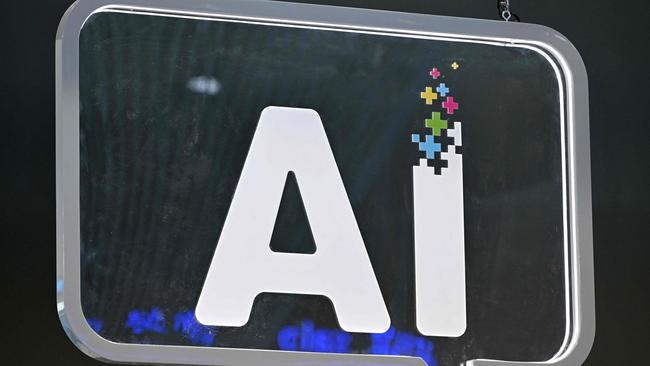HR operations slow to adopt AI, given their data and security concerns
HR professionals believe the use of AI will improve productivity and job performance but have concerns about data and security risks.

Human resources professionals believe the use of artificial intelligence will improve productivity and job performance but have concerns about data and security risks.
Research by the Queensland University of Technology and the Australian Human Resources Institute found HR had been slow to adopt AI and reluctant to provide advice to businesses regarding its use because of limited understanding.
AHRI chief executive Sarah McCann-Bartlett said the slow uptake of AI within HR reflected understandable caution around potential regulatory changes and risks but the research highlighted a clear need to build knowledge and capability in AI across the HR profession.
“HR professionals have an opportunity to lead the way in terms of AI adoption but in order to do this, they need to upskill and remain fully up to date with the latest developments in order to contribute fully to the strategy and direction of the organisation,” she said.
“It’s also important to note that adopting AI alone won’t automatically lead to productivity gains. We have seen the adoption of automation and AI for some time now, but this has not translated into productivity growth for the Australian economy.”
Asked about productivity, 86 per cent of the more than 200 HR professionals interviewed agreed or somewhat agreed that AI would improve output per hour; 21 per cent raised job losses as a concern either within their organisation or personally,
Eight-two per cent disagreed to some extent with the notion that they might lose their job because of AI and two-thirds of HR practitioners disagreed to some extent with the view that AI would lead to job losses in their organisation.
“The majority don’t think the adoption of AI will lead to job losses,” Ms McCann-Bartlett said. “They really see that AI is going to support those uplifts in productivity and effectiveness and efficiency and enhanced job performance, rather than lead to job losses.”
Trust remains a major barrier to the adoption of AI in decision-making, with more than 60 per cent expressing some disagreement with the statement that “AI is more trustworthy than humans”.
None strongly agreed that AI was more trustworthy than humans, with the research authors saying the results reflected a general sense of uncertainty or scepticism regarding the trustworthiness of AI.
When it came to fairness, almost 44 per cent disagreed with the statement that “AI decisions are fairer than those made by humans”, while 39.5 per cent disagreed that “AI decisions are more transparent than human decisions”.
Some 34.1 per cent agreed or somewhat agreed with this statement, and a further 26.4 per cent remained neutral.
More than 40 per cent disagreed with the statement that “information obtained through AI is accurate”, with 27.7 per cent neither agreeing nor disagreeing, and 26.4 per cent agreeing somewhat.
“I think the thing that really comes out is while adoption of AI by HR practitioners and managers is still relatively low, uptake by HR is really linked to the organisational environment and whether the organisation is an early adopter of AI, and whether senior leadership support AI adoption and implementation overall,” Ms McCann-Bartlett said.
“What it tells us is organisations need to invest in leadership and management capability to support the right kind of transition to AI.”








To join the conversation, please log in. Don't have an account? Register
Join the conversation, you are commenting as Logout